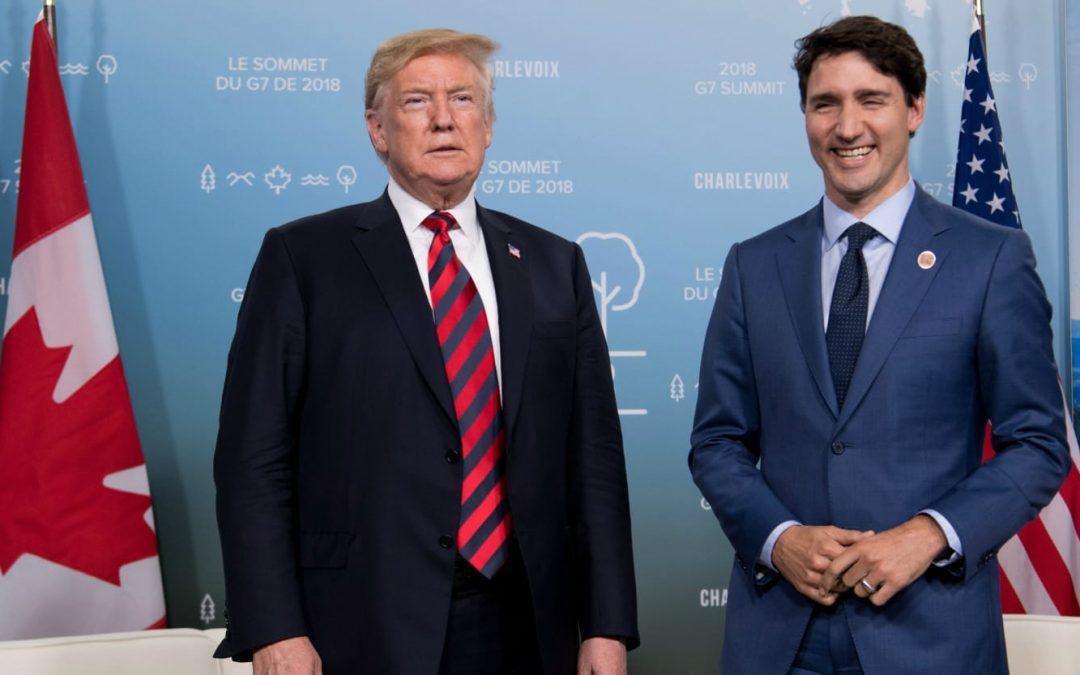President Trump is set to sign a successor to the North American Free Trade Agreement that will make modest revisions to a deal he once called a “disaster,” easing uncertainty for companies reliant on tariff-free commerce.
U.S. and Canadian negotiators worked around the clock this weekend to secure an agreement just before a Sunday midnight deadline, allowing leaders from those nations and Mexico to sign the accord by late November.
The 24-year-old Nafta will now be superseded by the U.S.-Mexico-Canada Agreement, or USMCA, covering a region that trades more than $1 trillion annually.
“The factories were leaving, the jobs were leaving, people were being fired,” Trump said describing the old agreement. “We have negotiated this new agreement based on the principle of fairness and reciprocity. To me it’s the most important word in trade.”
Canadian Prime Minister Justin Trudeau called it a “good day for Canada & our closest trading partners.”
Jesus Seade, the Nafta negotiator for Mexican President-elect Andres Manuel López Obrador, said “Nafta 2 will give certainty and stability to trade.”
The agreement is largely a refresh of a 25-year-old pact that has brought together the economies of Canada, Mexico and the United States but had become somewhat outdated in the digital age. It makes a series of changes to areas like intellectual property and the digital economy, including protections for patents and domain names.
As part of the deal, Canada will ease protections on its dairy market and provide access that is greater than what the United States would have gained through the Trans-Pacific Partnership, a trade treaty that Mr. Trump withdrew from last year.
The United States also relented on its demands to eliminate an independent tariff dispute settlement system that Canada has said is a red line in negotiations. Keeping that was a major concession for the United States and a change for what was agreed with Mexico.
The deal caps a turbulent period for relations between the U.S. and Canada, traditionally close allies on national security and trade.
The alliance was severely tested by Trump’s aggressive negotiating style and Trudeau’s willingness to stand his ground on key issues such as dairy and dispute settlement.
Trump attributed the breakthrough with Canada and Mexico to his use of tariffs and suggested that would continue to be part of his playbook as he tries to force concessions from other trading partners.
“Without tariffs, we wouldn’t be talking about a deal,” Trump said. “Just for those babies out there that keep talking about tariffs.”
